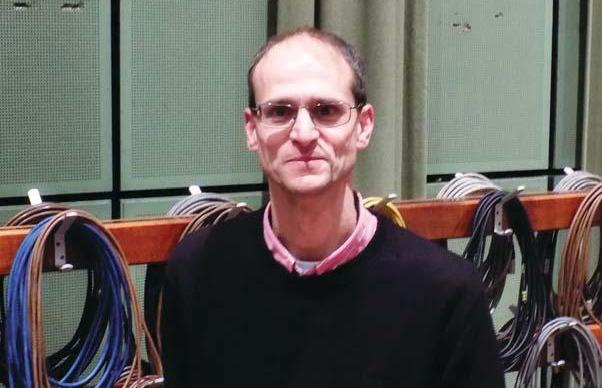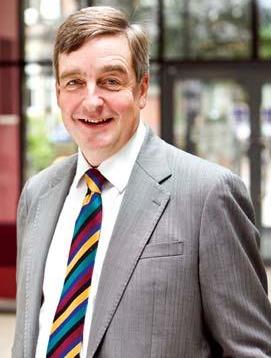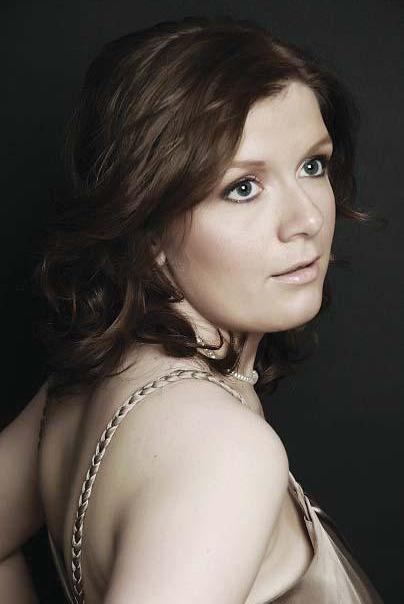
5 minute read
Keep On Keeping On
from ONA 99
If you’re one of those people who has always believed you’ve got a book in you, never bin those early efforts, says writer and BBC producer, Paul Bajoria (73-83).
The Printer’s Devil trilogy: a mystery of convicts, murderers and the shady inhabitants of the London underworld
Advertisement





If there were such a thing as a Pulitzer Prize for Procrastination, I’d be a shoo-in. Many’s the time in recent years, therefore, that I’ve had cause to be grateful in retrospect to my 24-yearold self for knuckling down and writing a book when I had a brief interlude with nothing better to do.
I’d come back to Newcastle from Canada where I’d taken a Masters in 20th century literature –and I was living at home while I worked out what kind of career I might conceivably be qualified for. I’m sure my parents were exasperated that I seemed to be spending hours on end sitting at the dining table writing a novel, instead of poring over the careers ads and firing off application forms in all directions. (In my defence, I was doing that too, some of the time.) But the story – an oldfashioned adventure for children set in 1820s London, mainly in the dark – had taken shape in my head while I was abroad, and this seemed as good an opportunity as any to let it come out. Of course, in my naïveté, I harboured more than a flicker of hope that it might interest a publisher, and that in the end I wouldn’t need to bother too much with the application forms.
Long before I’d finished it, my job-hunting efforts were starting to bear fruit and in my spare time was rapidly diminishing. I pressed on with the book anyway, got it into a finished state I was happy with, and went about sending the manuscript to a succession of publishers who, surprise, surprise, all sent it back. After a year or more of regular, polite rejections, I was so busy working in radio, by now embedded in the allconsuming activity of a BBC newsroom, that I sort-of stopped caring, and put it away in a drawer.
Fast-forward 12 years. I was listening to a long radio interview with an author called JK Rowling, who was exactly my age and who was causing a stir with her new children’s novel about a boy wizard, which she’d finally had published after years of poverty and persistence. The stupidity hit me again of allowing the story I’d spent months of my life working on to continue going yellow in a drawer. I read through it with new eyes, somehow found time to re-write large chunks of it, and sent it straight to the same literary agent who had ‘discovered’ Jo Rowling. Something clicked. Maybe my re-write was cleverer; maybe the Harry Potter phenomenon meant publishers were now more prepared to take risks on children’s fiction. Whatever it was, within a few months I was revising it yet again, with the agent’s encouragement and supervision. My kids were tiny, I’d become used to surviving on very little sleep, and daily life was feeling like a dream for quite a lot of the time in any case – so some kind of parental super-hormone was almost certainly playing its part too. A year or so later I had a publishing deal, not only here but in America, and Italy, and Germany, and Spain, and Brazil, and Greece, and Thailand…
This being the 21st century, no-one would be content with just one book, it had to become a series – trilogies were particularly fashionable –and The Printer’s Devil was followed by The God of Mischief and The City of Spirits, in which I surprised myself by resolving the apparentlyimpenetrable mystery, and bringing the emotional quest of the characters full-circle, in a way I’d certainly never originally planned.
I hardly need to write ‘spoiler alert’ before mentioning that I didn’t exactly find success on the scale Jo Rowling did – but, contrary to what many readers believe, even writers who are household names often work full- or part-time at something else in order to pay the bills while the next story emerges. I’m fortunate in having another hat to wear, as a producer on Radio 4, and have spent 20 years working with all-time great broadcasters like David Frost, Jenni Murray,

Paul at Maida Vale studios, BBC, London
Peter Snow, Robert Robinson, Paul Gambaccini, Stuart Maconie and Russell Davies. Writing fiction is devilishly hard to fit in around all of this, but you’ll see why I haven’t wanted to give it up, however well the books have been going. It was especially gratifying to spend a few years in the 90s working closely with the late Geoffrey Wheeler (45-48), a veteran broadcaster of the days when BBC announcers really did wear dinner dress – who was never at a loss for an anecdote about RGS life in the 40s and was always keen to hear news of the school. (On my 50th birthday some colleagues presented me with the Radio Times listings for the day I was born, and there was Geoffrey on the Light Programme, presenting ‘all-round entertainment for the whole family’ in The Record Show at eight o’clock that morning.)
John Lennon, in what’s otherwise one of his more mawkish songs, noted that, ‘Life is what happens to you when you’re busy making other plans’. I know that if I hadn’t seized the moment to spill that first book onto paper, all those years ago, ‘life’ would have taken over and it would probably still be unwritten. As it is, my next novel is taking shape, and I feel entirely confident there’ll be another after that, and another after that, until I’m too ga-ga to string a sentence together.






